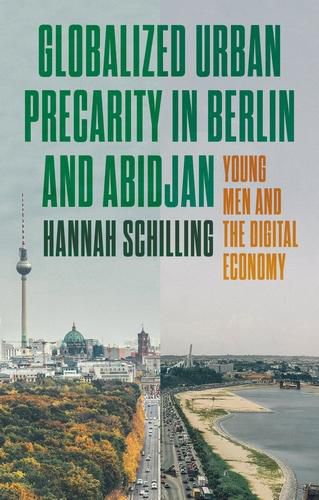Readings Newsletter
Become a Readings Member to make your shopping experience even easier.
Sign in or sign up for free!
You’re not far away from qualifying for FREE standard shipping within Australia
You’ve qualified for FREE standard shipping within Australia
The cart is loading…






Globalised urban precarity in Berlin and Abidjan examines urban youth's practices of making do in digital economies, to understand how precarious working conditions reverberate in the coming of age in contemporary cities. Through a comparative analysis of the perspectives of young men working as air time sellers in Abidjan and food delivery riders and Berlin, the book provides innovative analytical lenses to understand urban inequalities against the backdrop of current digital urban developments. Essentially, this ethnography challenges the easy conflation of instability with insecurity, and overcomes the centrality of wage labour in research on urban livelihood, by looking at a broader set of economic practices and relational mechanisms. The analysis shows how accruing symbolic capital, a feel for the game in contexts of ambiguity and access to care are fundamental for explaining the unequal distribution of risks for socio-material insecurities in unstable work settings.
$9.00 standard shipping within Australia
FREE standard shipping within Australia for orders over $100.00
Express & International shipping calculated at checkout
Globalised urban precarity in Berlin and Abidjan examines urban youth's practices of making do in digital economies, to understand how precarious working conditions reverberate in the coming of age in contemporary cities. Through a comparative analysis of the perspectives of young men working as air time sellers in Abidjan and food delivery riders and Berlin, the book provides innovative analytical lenses to understand urban inequalities against the backdrop of current digital urban developments. Essentially, this ethnography challenges the easy conflation of instability with insecurity, and overcomes the centrality of wage labour in research on urban livelihood, by looking at a broader set of economic practices and relational mechanisms. The analysis shows how accruing symbolic capital, a feel for the game in contexts of ambiguity and access to care are fundamental for explaining the unequal distribution of risks for socio-material insecurities in unstable work settings.